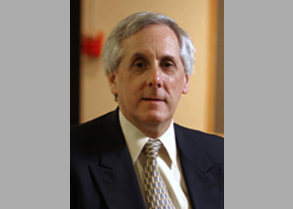Jay Winsten
Jay Winsten, PhD, is associate dean of the Harvard T.H. Chan School of Public Health and the Frank Stanton Director of the School’s Center for Health Communication. Professor Winsten is best known for his work in social marketing, spearheading high-profile campaigns on designated drivers, youth violence, youth mentoring, and malaria. Trained as a molecular biologist, he served as co-editor of the three-volume work, Origins of Human Cancer with Nobel laureate James Watson and Howard Hiatt, former dean of the Harvard T.H. Chan School of Public Health. Professor Winsten’s 1985 study, Science and the Media: The Boundaries of Truth, was praised by the Columbia Journalism Review as a “landmark study on the relationship between science and the press.”
As Founding Director of the Center for Health Communication, he was the driving force behind the Harvard Alcohol Project, which popularized the social concept of the designated driver in the United States starting in the late 1980s, and is credited for contributing to sharply lower rates of alcohol-related traffic fatalities. The Harvard Alcohol Project secured the involvement of the broadcasting and entertainment industries to spread the designated driver concept through public service announcements, news coverage, and the inclusion of references to designated drivers within the scripts of more than 160 prime-time television programs. Subsequently, he headed the communications task force which helped to plan the 1997 Presidents’ Summit on America’s Future in Philadelphia, chaired by General Colin Powell with all living US presidents in attendance. As an outgrowth of the Summit, Professor Winsten and colleagues turned their attention to using communication strategies to recruit volunteer mentors for at-risk youth as a powerful public health intervention.
The Center’s Harvard Mentoring Project won the support of three successive US presidents, the broadcast networks, and Hollywood studios, helping to establish mentoring for youth as an important national priority. He is a senior communications advisor to Mr Ray Chambers, World Health Organization Ambassador for Global Strategy, on an ambitious international effort to sharply reduce malaria-related deaths in Africa.

